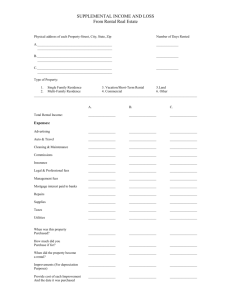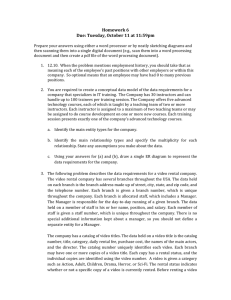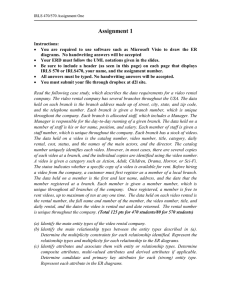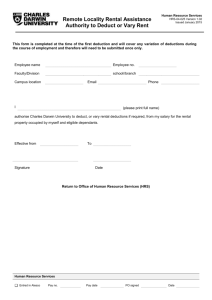Document 11910502
advertisement
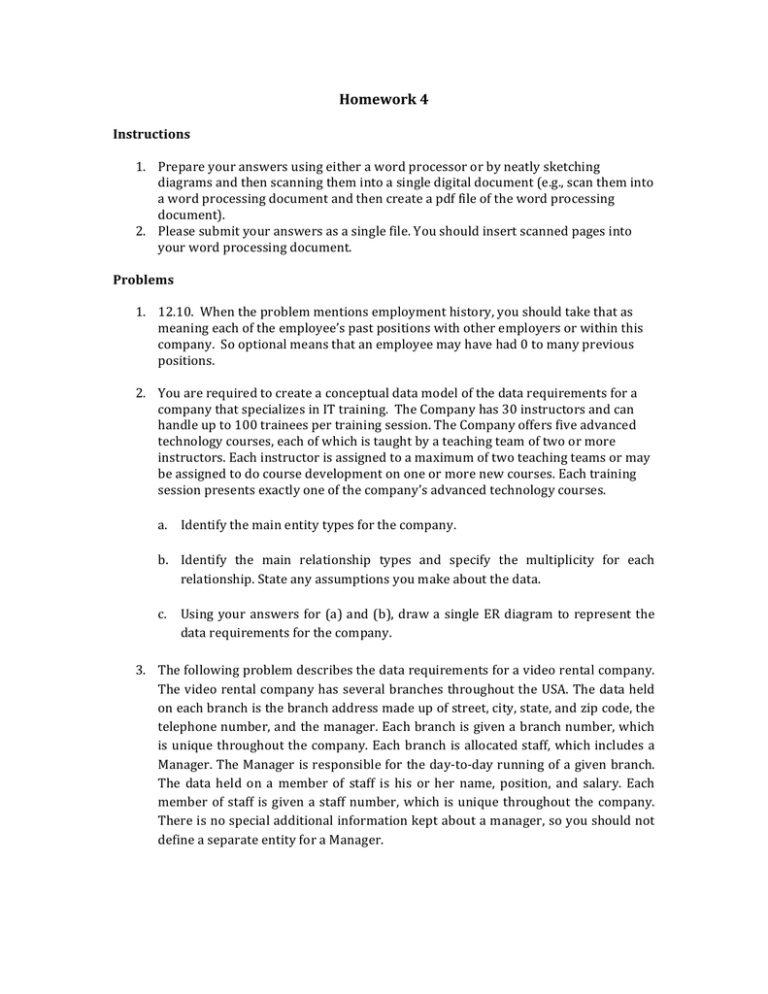
Homework 4 Instructions 1. Prepare your answers using either a word processor or by neatly sketching diagrams and then scanning them into a single digital document (e.g., scan them into a word processing document and then create a pdf file of the word processing document). 2. Please submit your answers as a single file. You should insert scanned pages into your word processing document. Problems 1. 12.10. When the problem mentions employment history, you should take that as meaning each of the employee’s past positions with other employers or within this company. So optional means that an employee may have had 0 to many previous positions. 2. You are required to create a conceptual data model of the data requirements for a company that specializes in IT training. The Company has 30 instructors and can handle up to 100 trainees per training session. The Company offers five advanced technology courses, each of which is taught by a teaching team of two or more instructors. Each instructor is assigned to a maximum of two teaching teams or may be assigned to do course development on one or more new courses. Each training session presents exactly one of the company’s advanced technology courses. a. Identify the main entity types for the company. b. Identify the main relationship types and specify the multiplicity for each relationship. State any assumptions you make about the data. c. Using your answers for (a) and (b), draw a single ER diagram to represent the data requirements for the company. 3. The following problem describes the data requirements for a video rental company. The video rental company has several branches throughout the USA. The data held on each branch is the branch address made up of street, city, state, and zip code, the telephone number, and the manager. Each branch is given a branch number, which is unique throughout the company. Each branch is allocated staff, which includes a Manager. The Manager is responsible for the day-­‐to-­‐day running of a given branch. The data held on a member of staff is his or her name, position, and salary. Each member of staff is given a staff number, which is unique throughout the company. There is no special additional information kept about a manager, so you should not define a separate entity for a Manager. The company has a catalog of video titles. The data held on a video title is the catalog number, title, category, daily rental fee, purchase cost, the names of the main actors, and the director. The catalog number uniquely identifies each video title. Each branch may have one or more copies of a video title. Each copy has a rental status, and the individual copies are identified using the video number. A video title is given a category such as Action, Adult, Children, Drama, Horror, or Sci-­‐Fi. The rental status indicates whether or not a specific copy of a video is currently rented. Before renting a video from the company, a customer must first register as a member of a local branch. The data held on a member is the first and last name, address, the date that the member registered at a branch, and the branch at which the member registered. Each member is given a member number, which is unique throughout all branches of the company. Once registered, a member is free to rent videos, up to a maximum of ten at any one time. The data held on each video rented is the rental number, the full name and number of the member, the video number, title, and daily rental, and the dates the video is rented out and date returned. The rental number is unique throughout the company. (a) (b) (c) Draw a single ER diagram to represent the data requirements of the video rental company. State any assumptions necessary to support your design. Identify attributes and associate them with entity types. Do not worry about duplicating data in entities in this assignment. The next assignment will use normalization to eliminate redundant data and unnecessary data dependencies. Identify candidate and primary key attributes for each entity type. Make reasonable assumptions about the uniqueness of attributes and state what those assumptions are if in doubt. For example, do not assume that customer names are unique but it is reasonable to assume that two customers with the same names do not live at the same address.
